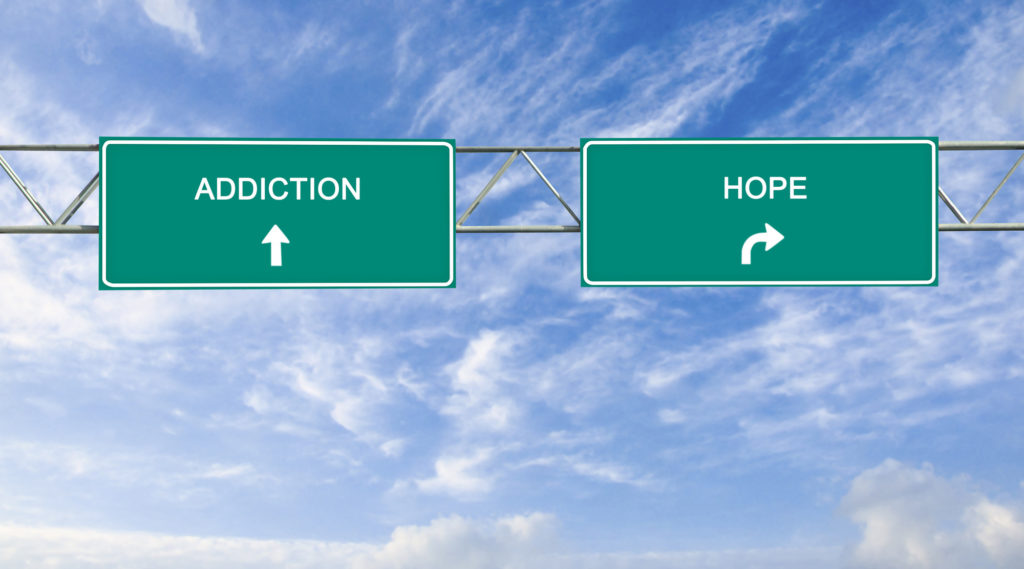
Facing substance abuse in a loved one is a frightening time. You care about them, and you want them to be healthy and happy. And that means getting your loved one the help they need.
The truth is, addiction is expensive, and not just emotionally. In 2014, 21.5 million American adults aged 12 and over struggled with addiction, and that addiction costs the nation $740 billion annually in lost productivity, crime, and healthcare.
The first step is knowing when your loved one needs help. Here, we’re breaking down the most common signs of addiction.
What is Addiction?
Before you look for the signs of drug abuse, you should understand a few things about addiction.
Drug addiction is defined as a chronic disease characterized by a compulsive use of substances like alcohol, prescription drugs, or illegal drugs that is difficult to control despite harmful consequences.
While many people begin using drugs in response to a situation, the ongoing abuse of drugs leads to brain changes that shift the behavior from voluntary to obsessive.
When helping a loved one, it’s important to remember that their addiction is not a character flaw, but rather a complex disease. They made bad decisions, but they’re unwell, and they need your help to get better.
Signs of Addiction
With this in mind, let’s talk about some of the key signs of addiction.
Keep in mind that the symptoms of drug abuse can vary depending on the drug in question–Adderall addiction looks different from alcohol or heroin abuse. That said, most forms of drug abuse have common features.
Once you recognize the signs of substance abuse in your loved one, it becomes that much easier to help them overcome their addiction.
Maybe that involves finding a support group and doctor-monitored outpatient recovery, or maybe it means going to rehab. If you need to find a rehab center for your loved one, click here.
Either way, it all starts with knowing the signs. Here’s what to watch out for.
Physical Dependence
Regardless of the type of abuse in question, the most common trait in all types of drugs is a physical dependence.
This means that the body learns to rely on the chemical influx that comes from drug abuse, and when that drug is absent, the body struggles to maintain a chemical balance.
This can result in a number of physical side effects, such as sweating or shaking when the drug isn’t in their system, but can also lead to subtler things like lethargy or jitteriness.
Physical tolerance is directly tied to levels of abuse–the more a person uses, the more of a drug they need to consume in order to feel the same positive effects. As such, it’s also tied to cycles of withdrawal.
Significant Changes in Attitude or Behavior
If a loved one is using drugs, especially if they’ve used before and previously gotten clean, you’ll likely notice changes in their behavior.
For example, development of depression is common among substance abusers, as their brain becomes chemically dependent on their drug of choice in order to maintain their mood.
This means that as their drug wears off, their brain will crash and struggle to maintain normal chemical levels that would keep them in normal, healthy mood patterns.
This is especially true if your loved one was faced with a situation or emotions they didn’t know how to deal with. They may then turn to their drug of choice in order to escape the problem.
Another common change is defensiveness and denial patterns. They may be unusually irritable or verbally combative when questioned about their habits.
Breaking Up Social Relationships
Humans are social creatures–we need groups in order to thrive.
The same thing is true of people who are using drugs or have used in the past. People require a solid support network in order to get sober and stay sober, including family and friends.
If your loved one starts breaking off these relationships or putting less effort into maintaining these relationships, it may be a sign that they’re abusing drugs or considering abusing.
This is for a few reasons. For one thing, they know, intrinsically, that their friends and family won’t support their decision to use, and they may distance themselves in order to justify their decision to abuse. They may also be trying to avoid disappointing their loved ones or those who have tried to help them.
This can take many forms, such as:
- More frequent arguments (or picking fights) with loved ones
- Spending less time with friends and family
- Lying to loved ones
- Not returning phone calls or canceling social outings
- Resenting those who try to help them
If your loved one is engaging in these behaviors, step back from your frustration and consider why they might be doing this. It’s a sign that they need your help more than ever.
Unusual Sleeping Patterns or Changes in Sleeping Patterns
As your loved one becomes dependent on drugs or alcohol, this creates a variety of chemical changes in the body which interferes with the body’s ability to self-regulate.
One of these changes shows up in sleeping patterns.
Your loved one may have trouble falling asleep, difficulty staying asleep, fall asleep at odd times, or be awake at unusual times. All of these are signs that their body is having problems maintaining normal sleeping patterns, a disruption that can be caused by cycles of drug abuse and withdrawal.
Financial Problems and Requests for Money
Is your loved one generally a financially responsible person? You may not think of it right away, but money can be a sign of drug issues.
For example, they may have sudden financial problems and debts that cannot be easily explained away, or that they get defensive about.
They may also ask you for money to pay off unexplained debts, or debts that don’t seem to go away no matter how often they borrow money from others.
It may also mean that they’re making risky decisions, such as spending money they don’t have, gambling to get more money for drugs, draining savings, even stealing money.
Withdrawal Symptoms
Withdrawal symptoms are a frightening sign that your loved one has shifted from thinking about abusing drugs to actually abusing them.
Withdrawal varies greatly depending on the drug in question–Dilaudid abuse, for example, can cause stomach cramps, diarrhea, insomnia, and chills, while ecstasy abuse can result in major muscle cramps and irregular heartbeat.
As such, it’s important to know what drug your loved one is using and what kind of withdrawal symptoms you need to look for.
Loss of Interest in Hobbies and Activities
Hobbies and activities are an easy way for people to maintain social connections and find an enjoyable way to pass the time.
If your loved one is losing interest in hobbies and activities they previously enjoyed, it may be a sign that they’re using their free time in other ways. This may not seem important, but personal hobbies and activities are an important way for people to experience a sense of purpose.
If they’re neglecting activities they once loved, partnered with other signs of abuse, they may be relying on drugs for an adrenaline rush and a sense of meaning.
Neglect of Responsibilities
Another classic sign of addiction is neglecting responsibilities.
This can be anything from work obligations to personal and social obligations like meetings with friends, picking up kids from school, or attending events.
Your loved one will likely be defensive about their absence and neglect of such responsibilities, though they may not be able to satisfactorily explain their absence.
Changes in Physical Appearance
One of the more obvious signs of drug addiction is changes in physical appearance.
This can cover a variety of changes and often depends on the drug in question. For example, weight changes are a commonly cited change–alcohol can cause bloating and weight gain, while other drugs may lead to significant weight loss if it disrupts your loved one’s appetite.
Hygiene is another big one, particularly poor hygiene. Dental health, for example, is often neglected in drug abuse and can lead to a variety of problems like serious mouth infections. But it can also cover more basic hygiene tasks like showering on a regular basis or washing their clothes often enough.
There may also be changes in their eyes. They may have watery or bloodshot eyes or pupils that are larger or smaller than normal. In addition, their face may be unusually pale or flushed.
Keep an eye out for physical changes in your loved one that can’t be explained away with everyday lifestyle shifts, especially if these changes are signs of declining health.
Secretive Behavior
Above all, secretive behaviors are a huge indicator of a burgeoning drug problem.
Your loved one knows that their friends and family won’t approve of their habit and will try to stop them. They also know that their behaviors are problematic, but the pull of addiction is powerful.
As such, they may go to great lengths to make sure you don’t know what they’re doing and become extremely defensive when their excuses are questioned.
More to Help You Overcome Addiction
Overcoming addiction is a difficult and frightening experience for you and your struggling loved one. But a major part of recovery is the support of loved ones, especially in facing their addiction.
And that means you need to be ready to face the signs of addiction head on.
If you need more tips, check out this guide to staging an intervention or these six tools to overcome addiction.

